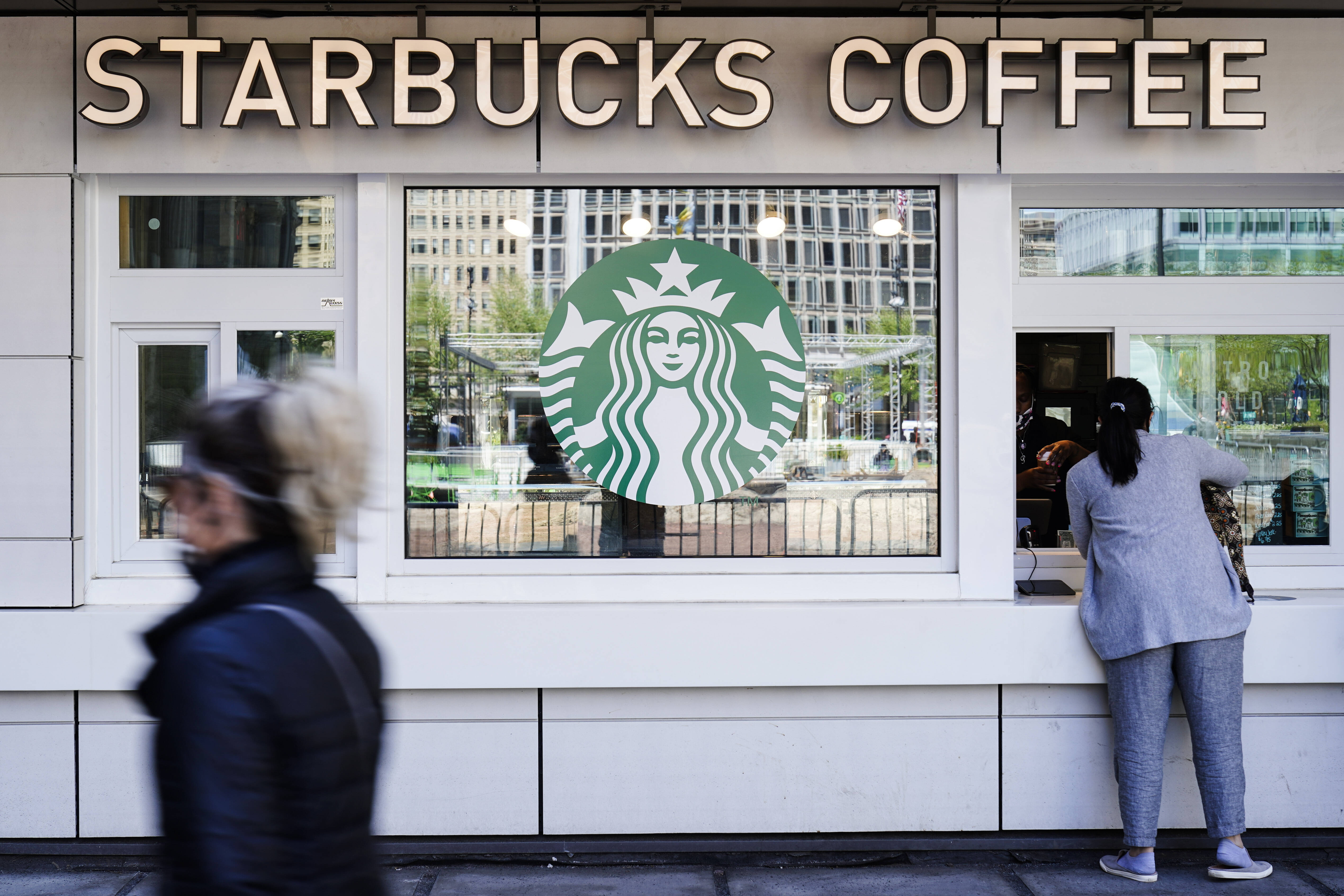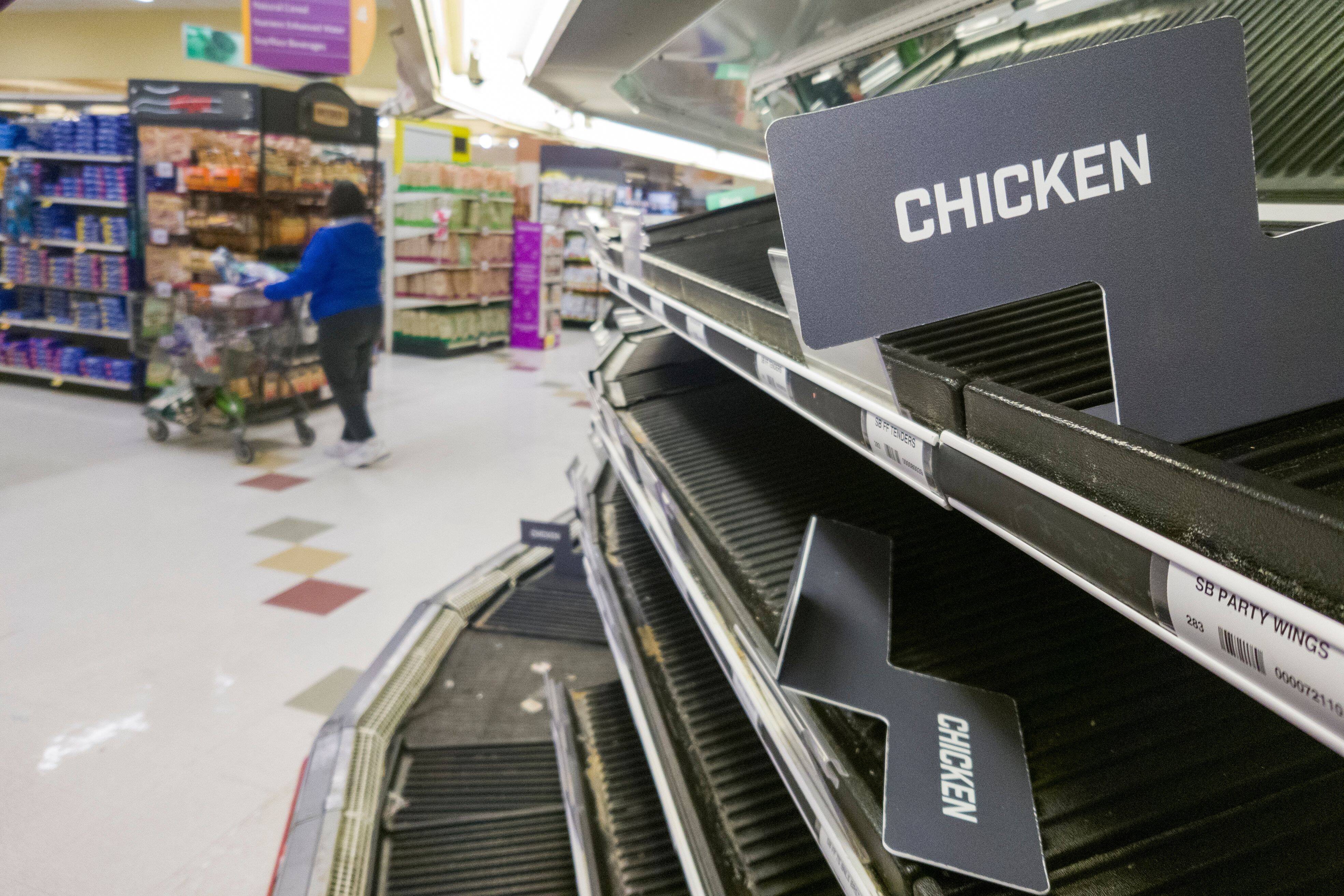| Inflation is the highest it's been in four decades, and it's also one of the most difficult economic issues for a politician. It's visceral for voters, it can feel like an unfair hit to many just trying to make ends meet, and it's difficult-to-impossible for politicians to control on their own. "We have seen hyperinflation in economies bring governments down," said economist Diane Swonk. And now, Starbucks is raising its prices. So things are getting real.  (Matt Rourke/AP) | Republicans will be talking about inflation a lot as they try to win control of Congress in November's midterm elections. Here's what you need to know as the political debate gets louder. The pandemic prompted it, yes: In this pandemic, many higher-income people simply stopped eating out and started ordering goods, right as factories that make those goods were dealing with sick workers. Those supply and labor shortages persist wave after wave — it's one reason Starbucks says it's raising its prices. And the impacts on the economy will be felt for a long time. Here in America, the Wall Street Journal calculated that "Covid-19 has left the same proportion of the population dead as did World War II, and in less time." But the "end" of the pandemic probably won't magically make things better: With vaccinations for children under 5 potentially in sight, society could get a whole lot more open. But the virus doesn't just surrender and everything goes back to normal. Instead, society will have to figure out how to live with a certain amount of coronavirus infections and deaths. And it will take time for the economy to settle into this new normal, Swonk said. That means inflation could keep going up, but just going up at a slower rate. That's something central bankers would say is a win, even though groceries and rent could stay more expensive than ever. One thing that's up for debate: How much coronavirus stimulus spending (under both President Biden and former president Donald Trump) contributed to inflation. Government spending did help the economy grow quickly, but the side effect may have been inflation. Heavy government spending hasn't always led to inflation. But in this case, many economists fear the large coronavirus relief bill passed by Congress in March 2021 exacerbated building inflation.  (Shawn Thew/EPA-EFE/Shutterstock) | People feel inflation acutely: Nothing erodes living standards like inflation, Swonk said. "All of a sudden, you have increases in wages, but you can't afford commute costs. And you can't afford to buy a new car, and also your insurance has gone up." It also disproportionately affects people on the lower end of the socio-economic level. That's why you see Americans pessimistic about the economy — and appearing to blame Biden for it — even as wages are going up and unemployment is so low. Inflation dominates Americans' lives right now. "The economy was the top priority for men and women, every age cohort, Latino and white voters, and those with and without college educations," CNBC writes about their January poll on this. (Black voters said racism was their No. 1 issue.) And what to do about it: The Washington Post's Jeff Stein and Rachel Siegel interviewed a dozen economists on how to fix the ensuing inflation, some of whom said the government needs to stop spending, and others who said spending on things like child care is exactly what's needed to help get women back into the workforce and make it stronger. Speaking of: What's the likelihood of Build Back Better happening? Democrats think that spending trillions to expand the government safety net for millions of Americans would certainly help the economy. But it's not happening. "It's dead," Sen. Joe Manchin III (D-W.Va.) told reporters Tuesday. Those are his strongest comments yet after he tanked hopes of voting on the bill before Christmas. And as you probably know by now, if Manchin isn't going to vote for something Democrats want, it isn't happening. Could Democrats cobble together some pieces of the bill — like universal prekindergarten, or expanded Medicare? Maybe. Manchin didn't explicitly say no to that. But he also hasn't seemed very keen to negotiate, and inflation is one reason he's opposed more government spending. 'When you are a Democrat, you are raising money for a very likely loss' Here's a quote in the news I thought was particularly interesting. It's from David Brock, the head of a Democratic super PAC, to The Post's Michael Scherer and Isaac Stanley-Becker. He's talking about how Republican organizations have more money to spend than Democrats. Things could change, but less than a year out from the midterm elections, the money battle is yet another sign that Republicans and their donors feel quite confident about taking back control of the House and Senate and stopping Biden's agenda at least for the rest of his first term. (Democrats had more money on hand right before their big recent election wins.) To bring this full circle, Republicans I talk to say that the more they can talk about inflation, the better their chances are to regain power. | 





No comments:
Post a Comment